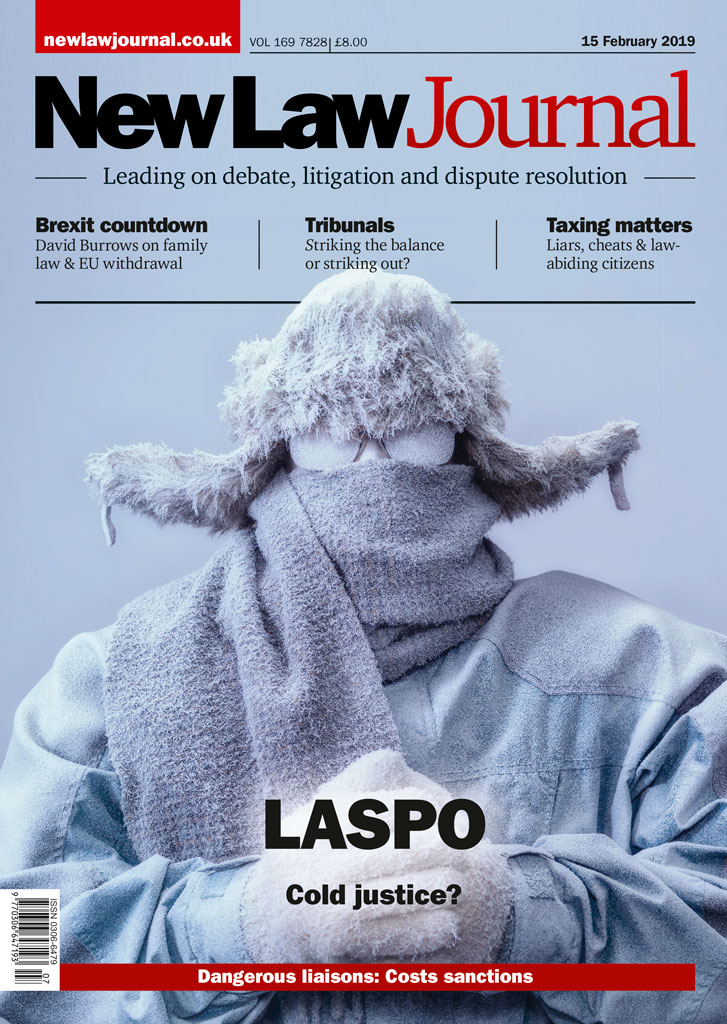THIS ISSUE

Where is family law today in relation to EU withdrawal? David Burrows fills the gaps
Jon Robins finds some flickers of hope in the LASPO review, while Geoffrey Bindman laments a missed opportunity for change
When should the justice of case proceedings prevail over hardnosed case management practice? Shane Crawford investigates
One size fits none. In the pursuit of compliance, HMRC has chosen to treat everyone like a tax cheat, says Peter Vaines
Jenna Coad & David O’Brien reflect on lessons from Giambrone & the award of non-party costs orders in a discretionary jurisdiction
Dominic Regan provides an updated cut out & keep guide to surviving sanctions
It’s not a question of if but when this new technology will start to transform law firms, so the time to prepare is now, says Jeffrey Catanzaro
Alec Samuels reflects on bias—especially political bias—in the judiciary
Lawyers label extra funding ‘but a drop in the ocean’
MOVERS & SHAKERS

Jackson Lees Group—Jannina Barker, Laura Beattie & Catherine McCrindle
Firm promotes senior associate and team leader as wills, trusts and probate team expands

Asserson—Michael Francos-Downs
Manchester real estate finance practice welcomes legal director

McCarthy Denning—Harvey Knight & Martin Sandler
Financial services and regulatory offering boosted by partner hires
NEWS
The cab-rank rule remains a bulwark of the rule of law, yet lawyers are increasingly judged by their clients’ causes. Writing in NLJ this week, Ian McDougall, president of the LexisNexis Rule of Law Foundation, warns that conflating representation with endorsement is a ‘clear and present danger’
Holiday lets may promise easy returns, but restrictive covenants can swiftly scupper plans. Writing in NLJ this week, Andrew Francis of Serle Court recounts how covenants limiting use to a ‘private dwelling house’ or ‘private residence’ have repeatedly defeated short-term letting schemes
Artificial intelligence (AI) is already embedded in the civil courts, but regulation lags behind practice. Writing in NLJ this week, Ben Roe of Baker McKenzie charts a landscape where AI assists with transcription, case management and document handling, yet raises acute concerns over evidence, advocacy and even judgment-writing
The Supreme Court has drawn a firm line under branding creativity in regulated markets. In Dairy UK Ltd v Oatly AB, it ruled that Oatly’s ‘post-milk generation’ trade mark unlawfully deployed a protected dairy designation. In NLJ this week, Asima Rana of DWF explains that the court prioritised ‘regulatory clarity over creative branding choices’, holding that ‘designation’ extends beyond product names to marketing slogans
From cat fouling to Part 36 brinkmanship, the latest 'Civil way' round-up is a reminder that procedural skirmishes can have sharp teeth. NLJ columnist Stephen Gold ranges across recent decisions with his customary wit







